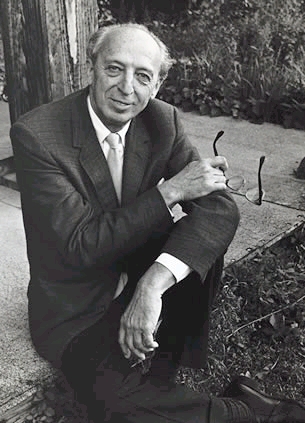Chicago Ensemble marks 35 years with a typically venturesome program

While the Chicago Ensemble is not the most high-profile of this city’s many chamber groups, none has a longer lineage nor with the same artistic leadership at the helm.
With an enterprising mix of familiar music and choice rarities — aided by artistic director-pianist Gerald Rizzer’s informed and informal verbal program notes — the Chicago Ensemble offers a relaxed and inviting atmosphere. Add the free cookies, coffee and refreshments and one could hardly ask for a more welcoming environment for chamber music.
The Chicago Ensemble launched its 35th season Sunday afternoon at International House in Hyde Park with a typically generous and wide-ranging program of piano trios, music of Mozart and Beethoven flanking two 20th-century American works.
For a composer as popular as Aaron Copland, most of his small chamber output remains strangely underperformed. Kudos to Rizzer for bringing Copland’s rarely heard Vitebsk to local audiences.
Written in 1929, Copland’s single-movement piano trio hails from the closing years of his Modernist period. Those tough, rugged qualities are evident from the jarring crash of the sharply dissonant opening bars. Subtitled “Study on a Jewish Theme,” the trio takes its main theme from a Russian-Jewish melody thought to have originated in the title city (now in Belarus).
Vitebsk is the only work in Copland’s oeuvre that takes conscious note of his Jewish roots (though one can hear an Eastern European strain in the ruminative melancholy of even his most populist works). There are fleeting moments of plaintive lyricism — the cello’s iteration of the theme — in this concise 11-minute work, but the trio is dominantly hard-edged and aggressive with virtuosic writing for alll three players.
Rizzer, violinist Mathias Tacke and cellist Andrew Snow served up a committed and bravura performance that proved the highlight of the afternoon with Rizzer’s fleet-fingered piano work especially impressive.
One of the Chicago Ensemble’s most laudable initiatives over its three and one-half decades is Rizzer’s “Discover America” competition, which has awarded and provided advocacy to dozens of homegrown chamber music works, many of them world premieres.
Scott Wheeler’s Trio No. 2, Camera Dances, was one of the winners of the most recent competition. Stravinsky is the clear influence in this spiky score, with its high harmonics, biting accents, and violent pizzicatos. The third movement is most striking, a meditative theme for strings against restless, skittering piano fragments in music that pushes the bounds of tonality. Sunday’s encore performance sounded more lived-in than the group’s local debut of the work last June, and the musicians provided concentrated and driving advocacy.
Beethoven’s Ghost is the most often heard work of the composer’s Op. 70 pair of piano trios. Rizzer, characteristically, gave audiences the less often heard Trio in E flat major, Op. 70, No. 2.
The E flat trio is a more relaxed and even-tempered work than the stormy Ghost, though no less melodically bounteous. The third movement Allegretto is most striking, a Landler that seems to anticipate Beethoven’s younger colleague, Schubert. The Chicago Ensemble delivered a sturdy performance conveying the relaxed, spirited essence of the trio, some fitful scrappy string intonation and hectic moments in the finale apart.
The concert opened with Mozart’s Piano Trio in B flat, K.502. The playing had the requisite Rococo grace and charm, spotlighted by Rizzer’s nimbly articulated keyboard work. The Larghetto — one of Mozart’s loveliest chamber slow movements — was marred by wayward violin intonation, which also surfaced in the finale, though the movement was otherwise neatly dispatched.
The program will be repeated 7:30 p.m. Tuesday at Fourth Presbyterian Church on Michigan Ave. thechicagoensemble.org; 773-889-4206.
Posted in Uncategorized

